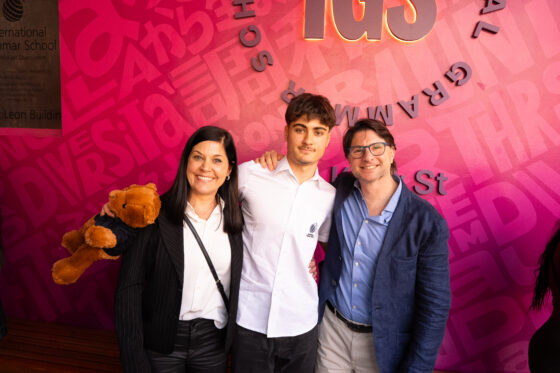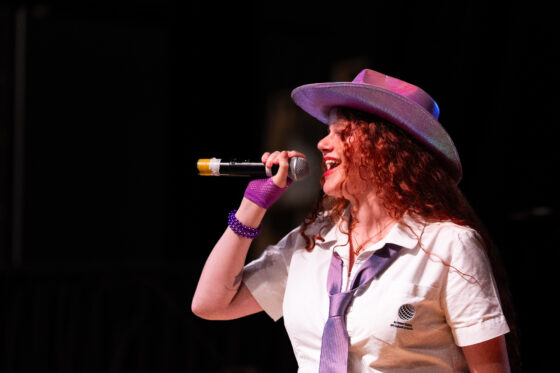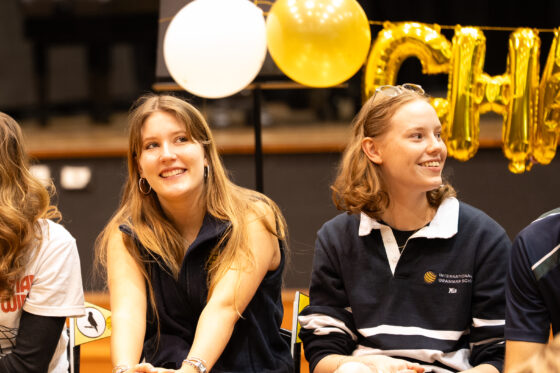Both performances of The Real Inspector Hound went brilliantly! I thought the set design and lighting was very atmospheric and reminiscent of a warm, old English manor house. Once I saw the students inhabiting the space in full costume and makeup, I thought they looked like a professional troupe of actors. Parents were also chatting excitedly to their children after the show — it was a great enthusiastic crowd.
Students should feel really proud of all they achieved because it was a huge challenge. To perform in a play requires a lot of time and dedication and students had the added challenge of performing a satire with complicated phrasing, characters and plot structure. We had students ranging from Years 9 to 11, some of whom had never acted before and others who would be taking Drama as an HSC elective. Nevertheless, they all came together on stage and performed as a cohesive ensemble. I was particularly impressed by the way in which the older students would support and nurture the younger ones.
Margot Morton (Stage Manager) and Abigail Advani (Lighting Operator) also did a fabulous job. Abigail has worked on a few productions at this point and she is becoming a bit of a pro on the lighting desk. Margot was new to Stage Management but learnt the job very quickly and was always on the ball. I also challenged her to use a professional program called QLAB in order to cue sounds for the show and she picked up the software straight away. May Ierace also did brilliantly stepping in to play Lady Cynthia Muldoon so last minute. This was a really daunting experience but she handled it like an absolute champion.
After the show the students all thanked me for the experience. They said that they felt supported during the rehearsal process and that they had a lot of fun. A student who had never acted before said he would pursue Drama in the future and hopes to continue to take part in school plays. In general students had a lot of fun.
We rehearsed for two hours a week, twice a week. As the director I created a rehearsal schedule based on student’s availability and on the length/complexity of the scenes. We could not always rehearse in chronological order. I would read the scenes in advance and essentially start jotting down some directorial notes which could include things like comedic gags/lazzi or some thoughts I may have about character motivations or relationships. In doing this I would essentially create an initial design for how I would like the scene to play out. Once we got into the rehearsal room I would sit the students down, we would read through the scene and talk through major moments, answer any questions as a group. Then I would ask students to just get up with their script in hand and perform the scene by harnessing their own creativity and their knowledge of the play and their characters. Oftentimes students will offer some interesting interpretations on a character or find a funny gag during this scene run. It would then be my job to tweak these moments or ask them to investigate their ideas further. We would continue this way for a couple of hours, stopping to re-think or clean-up certain moments until we had created a whole scene. This is the way a lot of professional companies work and I thought it was important to uphold these young people to this standard. I wanted them to think like a company of actors; to collaborate and to be brave.
Performing in school plays are some of my fondest memories so I hoped to create an equally fulfilling experience for the students. School plays are special because they can help a young person develop their confidence, they encourage creativity and allow students to apply all the textual analysis work they do in class to practical a context/exercise. It’s a brilliant challenge and a great learning experience. I was thrilled to be asked back to the school to direct a show, it felt like I had come full circle!
View the gallery




















